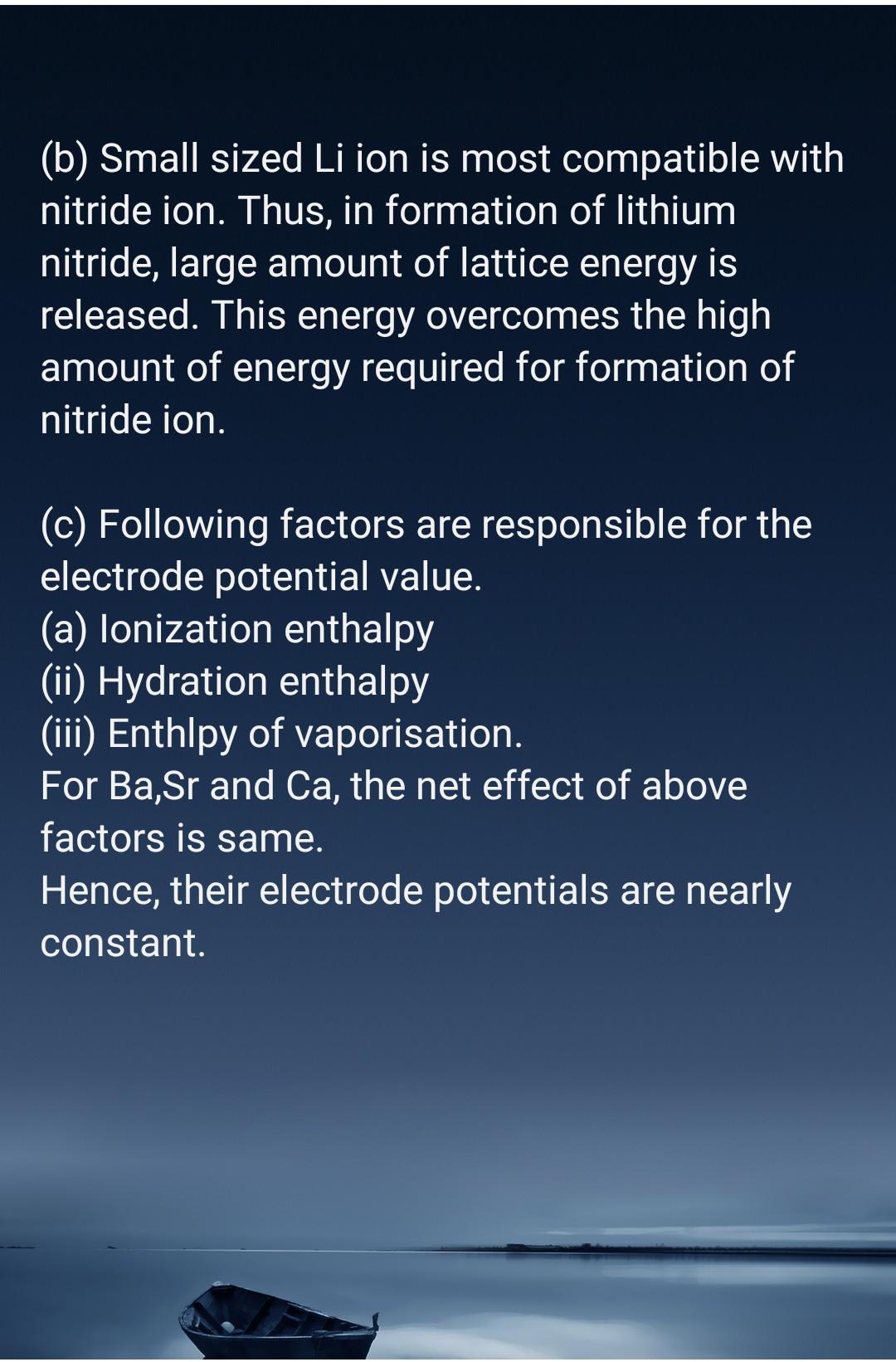Time management is very much important in IIT JAM. The eduncle test series for IIT JAM Mathematical Statistics helped me a lot in this portion. I am very thankful to the test series I bought from eduncle.
Nilanjan Bhowmick AIR 3, CSIR NET (Earth Science)Shweta Thakur posted an Question
- IIT JAM
- Chemistry (CY)
Plz explain these two question also... 6) lithium is the only alkali metal to form a nitride directly. (c) e' for m(ag) (where m = ca, sr or ba)
(6) Lithium is the only alkali metal to form a nitride directly. (c) E' for M(ag) (where M = Ca, Sr or Ba) is nearly constant.
- 0 Likes
- 4 Comments
- 0 Shares
-
![comment-profile-img]() >
>
-
![comment-profile-img]() >
>
-
Suman Kumar Best Answer
Lithium resembles with Magnesium. Remember bridge relationship. Lithium has high polarizing power so it can form covalent bond. So it can form Nitride
![eduncle-logo-app]()
Sweta did you get this
![eduncle-logo-app]()
yes mam then why not na ,k RB form bond with nitrogen
![eduncle-logo-app]()
They don't have high polarizing power
![eduncle-logo-app]()
thanks
Do You Want Better RANK in Your Exam?
Start Your Preparations with Eduncle’s FREE Study Material
- Updated Syllabus, Paper Pattern & Full Exam Details
- Sample Theory of Most Important Topic
- Model Test Paper with Detailed Solutions
- Last 5 Years Question Papers & Answers
Sign Up to Download FREE Study Material Worth Rs. 500/-










 >
>
 >
>










Priyanshu kumar
Lithium is the smallest atom among alkali metals. ... When Lithium reacts with nitrogen gas at room temperature (N2), it forms Lithium Nitride (Li3N) which is stable, because the lattice energy released from the formation of Li3N is high enough to make the overall reaction exothermic. read this shweta👆
Following factors are responsible for the electrode potential value. (a) Ionization enthalpy (ii) Hydration enthalpy (iii) Enthlpy of vaporisation. For Ba,Sr and Ca, the net effect of above factors is same. Hence, their electrode potentials are nearly constant.
read this👆
thanku